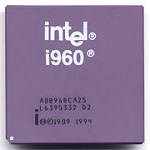 They say that close only counts in horseshoes and hand grenades. It also, however, counts in indictments, and the recent Sudarshan indictment, which we reported last week, is a case in point. That indictment is only half right, but that would be enough, if a jury buys it, to send Mr. Sudarshan to jail.
They say that close only counts in horseshoes and hand grenades. It also, however, counts in indictments, and the recent Sudarshan indictment, which we reported last week, is a case in point. That indictment is only half right, but that would be enough, if a jury buys it, to send Mr. Sudarshan to jail.
The half of the indictment that appears right is pretty straightforward. The indictment alleges that Mr. Sudarshan, through Singapore-based Cirrus Electronics took orders for electronic components from the Vikram Sarabhai Space Centre (“VSSC”) and Bharat Dynamics, Ltd (“BDL”) both Indian-government related companies on the Entity List. Sudarshan would then use a U.S. subsidiary of Cirrus to source these parts from U.S. vendors. The U.S. subsidiary would then ship the components to Cirrus in Singapore which would then ship the components to VSSC and BDL without obtaining the licenses required by the Bureau of Industry and Security (“BIS”) for exports to parties on the Entity List.
When the U.S. vendors requested end-use statements for the parts being sold to Cirrus, Sudarshan would lie to them and claim that the parts were destined for the Navy Physical and Oceanographic Laboratory in Kochi, India. If the allegations are proven, Mr. Sudarshan, who was arrested two weeks ago in South Carolina, may have to delay his return trip to Singapore for a good deal longer than he expected.
The second half of the indictment alleges that Sudarshan exported defense articles without the necessary license from the Directorate of Defense Trade Controls (“DDTC”), and it’s here that the indictment appears to start getting things wrong. The indictment alleges that Sudarshan obtained and exported without DDTC authorization Intel i960 microprocessors, which the indictment alleges is an item on the United States Munitions List. Additionally, the indictment singles out exports by Sudarshan of M39014/01-1284, M39014/01-1299, M39014/01-1317, M39014/01-1535, and M39014/01-1553 capacitors, which it also alleges were USML items. Neither seems to be the case.
The Intel i960 processor was popular in the 1990s. Only one flavor of the chip, the i960MX, was specifically designed or configured for military use. The indictment, however, doesn’t allege that the i960MX chip was involved and refers only to the i960. Moreover, the i960MX was apparently no longer even in production during the time frame covered by the indictment.
The i960 chip itself is a microprocessor that can be used in a wide variety of applications and is, according to Intel, “a time-proven and excellent choice for local and wide-area networking, telecom and imaging applications.” It is also used in slot machines, not normally considered a military application.
Sudarshan obtained the i960 chips from a vendor in Newburyport, Massachusetts, which produced these chips under license from Intel. The vendor also apparently did not believe that the i960 chip that it was selling to Sudarshan was USML. According to the indictment:
SUDARSHAN falsely assured representatives of the vendor in Newburyport, Massachusetts, that the i960 microprocessors were going to remain in Singapore for use in a joint Government of India project with Lockheed Martin, when, in fact, Cirrus Singapore was going to re-export the i960 microprocessors to ADE [the Aeronautical Development Establishment] in India for use in the navigation and weapons guidance systems of the Tejas Light Combat Aircraft.
Thus, it was clear to the vendor that the i960 was being exported by Cirrus to ADE and yet it did not insist that Sudarshan obtain a DDTC license for that export.
The capacitors identified by the indictment as exported without the necessary DDTC license are widely available “off-the-shelf” components, as a simple Google search demonstrates. There is no indication that they were specifically designed or configured for military use, making any claim that they are USML more than a little untenable.
It appears that the government’s theory is that these items were USML because they were being shipped to India for use with the Tejas Light Combat Aircraft. That, however, has never been enough to turn a commercially-available, off-the-shelf item into a defense item on the USML.
Perhaps DDTC should start doing export training for Assistant U.S. Attorneys.

 Posted by
Posted by  Category:
Category: 

 . . . is to gag your opponent. And that’s exactly how the prosecution is trying to win the public domain argument in the Chi Mak trial, which we’ve discussed
. . . is to gag your opponent. And that’s exactly how the prosecution is trying to win the public domain argument in the Chi Mak trial, which we’ve discussed  Yesterday we
Yesterday we  The trial of Chi Mak and other members of his family for export of ITAR-controlled technical data begins this week. An
The trial of Chi Mak and other members of his family for export of ITAR-controlled technical data begins this week. An  At the same time that
At the same time that 

